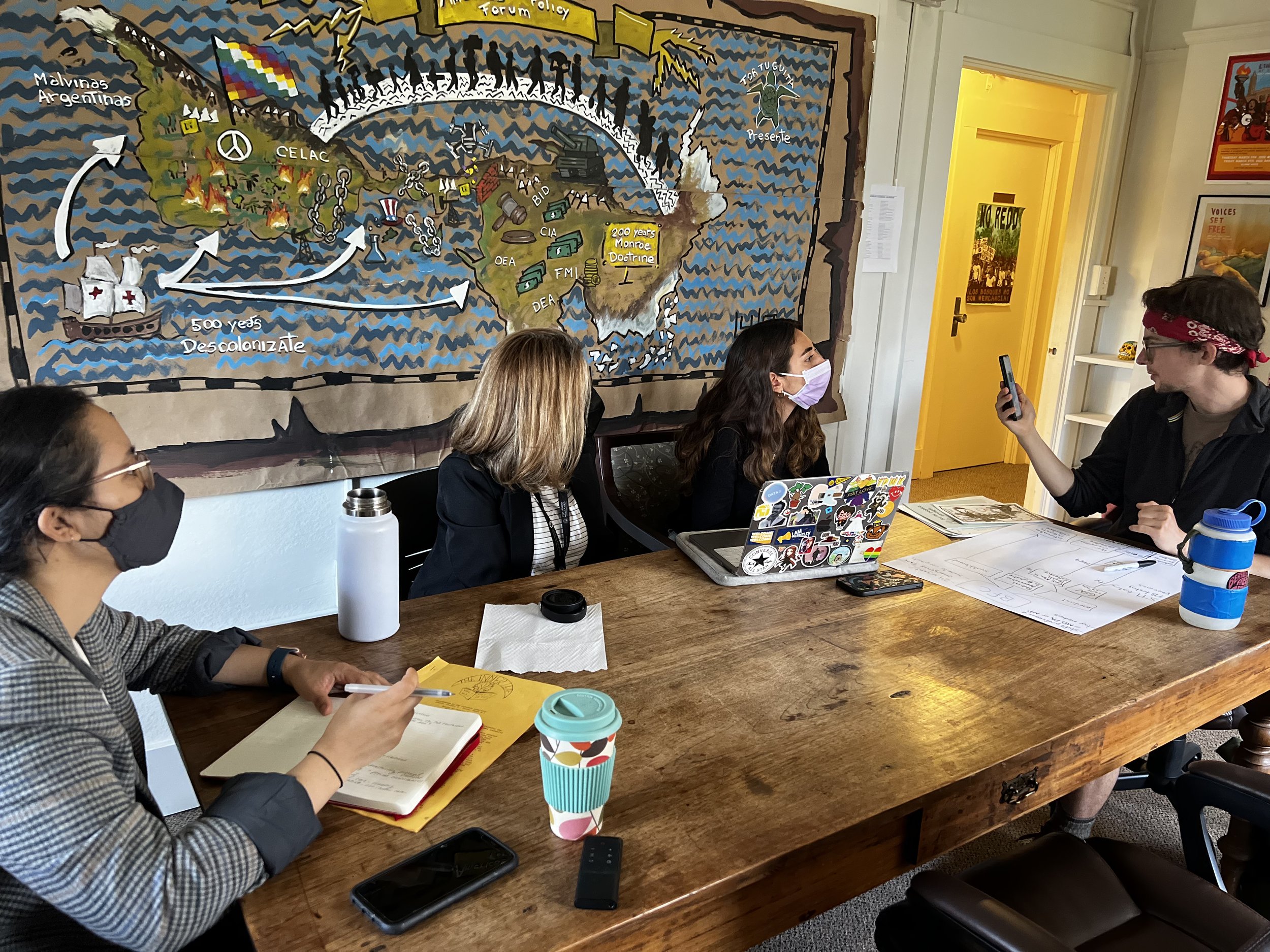Healthcare for people. Not profit.
Berkeley Free Clinic
Director Dr. Mantini-Briggs and undergraduate research assistant, Nancy Garcia, interviewed Cal alumni and board member of the Berkeley Free Clinic, Finn Black. In this interview, Black shared the Clinic’s mission as well as his insights, experiences, and the Clinic's mission in a heartfelt conversation about the organization’s history. Formed in 1969 by retired combat medics, it was established as a radical alternative to mainstream medicine and to provide care for protesters injured by UC Berkeley police during the People’s Park Riots. Fifty years later, it continues to offer free services to all—and has been responsive to the health needs of underserved communities.
Why Berkeley Free Clinic?
One of the most striking aspects of the Berkeley Free Clinic, and why we have included it in our research, is its strong commitment to inclusivity. It welcomes everyone, regardless of their ability to pay or their background. Black emphasized that their primary goal is to ensure that no one in their community goes without essential healthcare, and they go above and beyond to make this a reality. The COVID-19 pandemic was no exception–BFC volunteers took fresh water, masks, and food to the unhoused around Berkeley. Staying true to its roots, BFC also provided first aid supplies, water, and snacks during the Black Lives Matter movements to support protesters that have tear gassed by the police in Berkeley and Oakland.
We were going out there every single week for months, getting folks vaccinated, and that for me was very empowering. Realizing we are a small organization that doesn't have a lot of money and yet we have community connections.
—Finn Black
“During the BLM movement...Telegraph Avenue had been teargassed all night by the police. People who distributed first aid supplies, water, and snacks were from the Berkeley Free Clinic ”
— Finn Black
A hallmark of the clinic is its distinctive non-bureaucratic structure, which adeptly and straightforwardly establishes essential preventive care and treatments for those in need. Throughout our interview with Black, a central theme emerges — the clinic's capacity to compensate for the deficiencies in governmental public health initiatives and the constraints of health insurance. Of equal significance is the clinic's unwavering commitment to providing protection and support to underrepresented populations in Berkeley, including unhoused individuals, Black, Latinx, Asian, LGBTQ+ communities, and others facing marginalization. In essence, the clinic BFC has over many years remained responsive to the evolving needs of the community, showcasing the transformative impact of community engagement and solidarity.
Credits
Written by undergraduate research assistants: Jimena Romano Silva and Nancy Garcia
Field work carried out by Undergraduate Research Assistant: Nancy Garcia
Principal Investigator: Dr. Clara Mantini-Briggs


